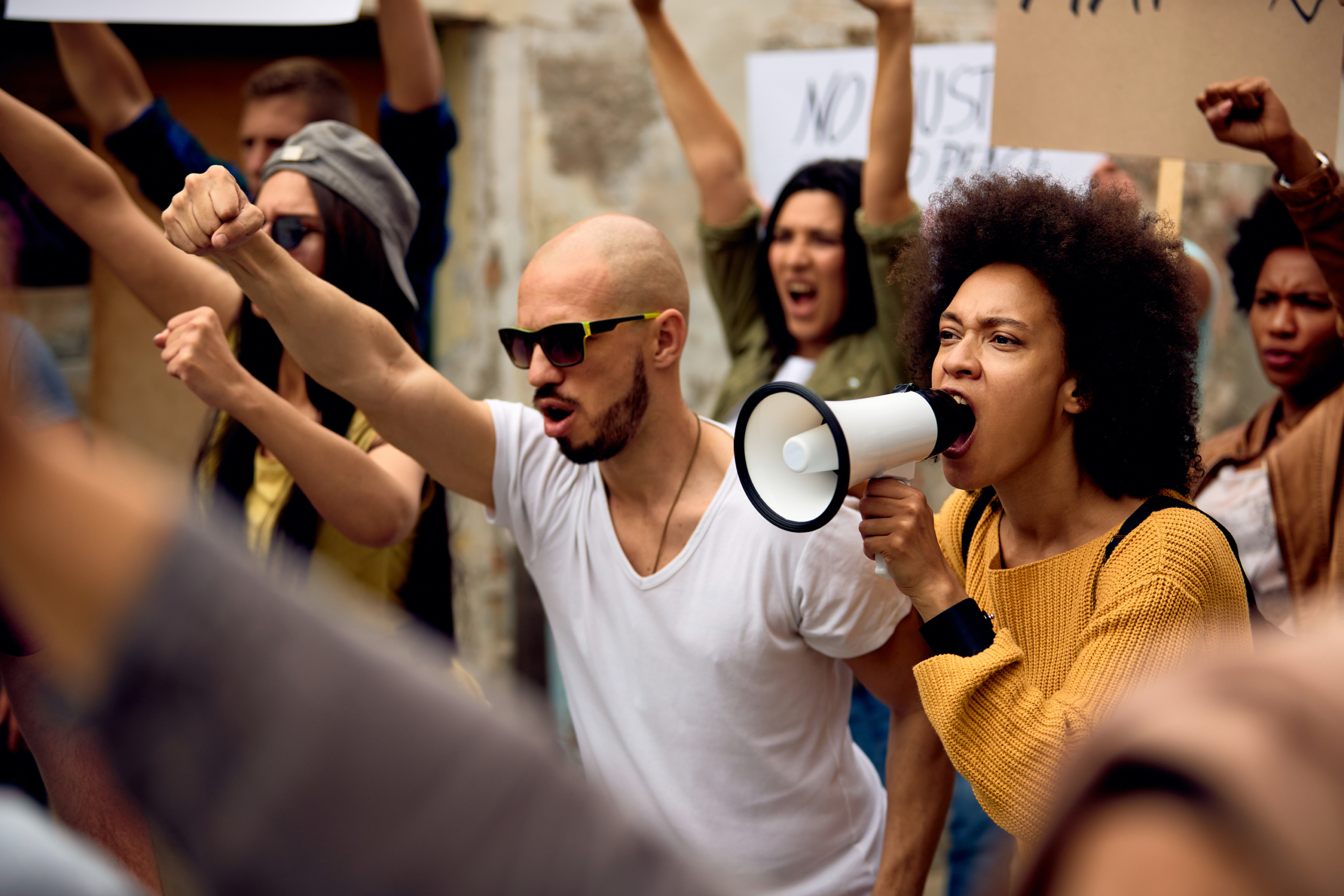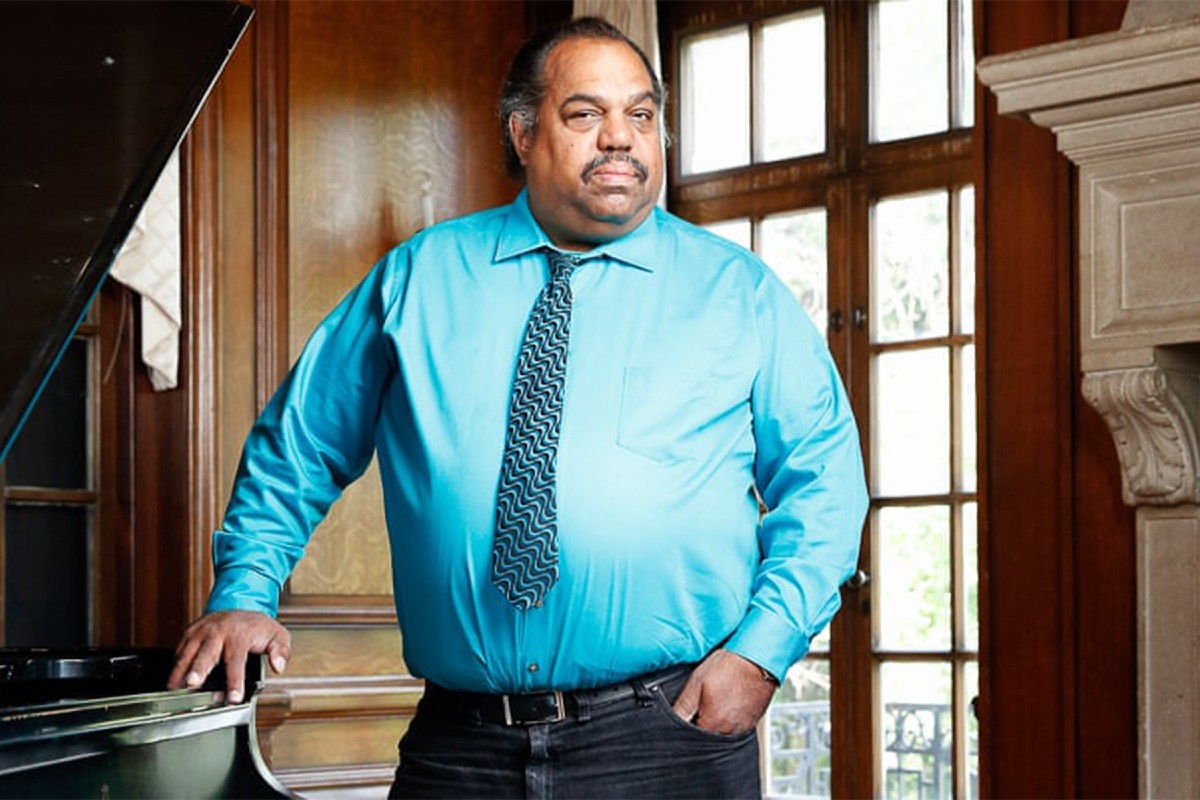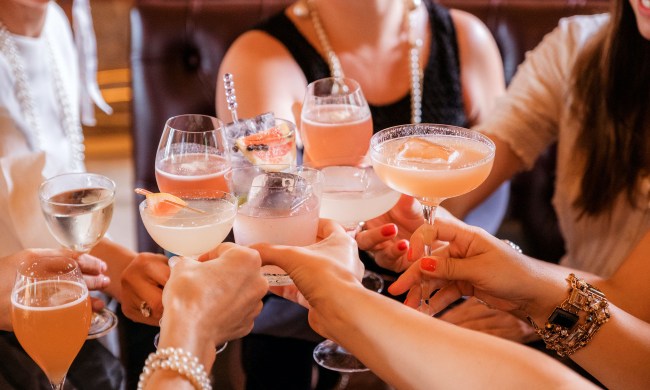2020 has been the most tumultuous year in recent history. Not only are we in the midst of a deadly pandemic and political turmoil, but there is undeniable civil rights movement occurring across the country.
Long before the name George Floyd became a household name and chants of “Black Lives Matter” filled the streets, civil rights activist Daryl Davis had devoted his life to improving race relations, even taking it upon himself to personally convince members of the Ku Klux Klan to retire their robes. Davis, whose weekly podcast Changing Minds at Change.minds.com is a thought-provoking source of hope in this latest movement, explains to Blissmark why activism is more important now than ever before, and what all of us can do — regardless of gender, race, or skin color — to be an ally.

History is being made
“Right now, we are seeing one of the biggest changes in the 21st century thus far,” Davis, 62, explains. “An unprecedented page is turning in the book of American history. The March for Civil Rights has almost as many White participants as Black ones for the first time ever.”
He points out that the “ever-looming symbols of the Confederacy are being dismantled, racist police are being addressed more swiftly and aggressively than ever before” and “conversations on race, once considered taboo, are now being openly discussed.”
“With the collective Black, White and other voices of the American people coming together to effect this progress and these changes, activism is of the utmost importance right now to continue in this positive direction and defeat those attempting to retard growth in the name of supremacy,” he points out. However, he adds that it is important to realize that activism can only be successful when others (the collective voice) is on board joining the same cause.
Become an ally by abandoning your comfort zone
Davis explains that it is easy to be an ally, demonstrated by our everyday actions.
“We need to walk across the cafeteria,” he says. “In other words, don’t be afraid to leave your echo chamber bubble once or twice per week.”
Sure, all of use work or go to school with others who don’t look like us, speak another language, or practice another faith, and we might even work well together because we have to get the job done. “However, when we break for lunch and head to the cafeteria, Whites sit with Whites, Blacks with Blacks, Hispanics, with Hispanics, Asians with Asians, and so on,” he points out.
Just because you are sitting with people that look like you, it doesn’t necessarily mean you are racist. “People tend to self-segregate because they feel more comfortable around familiarity, being around those who look like them and share their language,” Davis points out. However, “over a prolonged period of time, if this practice continues without social interaction with other groups, tribalism can creep in and develop an ‘Us versus Them’ mentality.”
Therefore, a really simple way to be an ally is by crossing over that boundary.
“There is nothing to fear by one or twice a week, walking across the cafeteria and having lunch with someone outside of your normal tablemates,” he suggests. “You have something to learn from other people and they have something to learn from you. It’s better to get the direct experience rather than form false assumption about the person sitting at the other table. It’s not going to hurt you and you might discover your best friend has always been a table or two away.”

Invest your resources in education and exposure
If you do want to invest your time, money, and energy in the movement, he suggests focusing on education and exposure. “Ignorance breeds fear,” Davis says. “We fear the things we don’t understand. Fear will breed hatred (we hate the things that frighten us). Hatred becomes anger and will breed destruction (we destroy that which we hate, because we fear it. But, if we had been educated about it and exposed to it, we might discover it was harmless and we were simply ignorant).”
Simply put, the cure for ignorance is education and exposure. “When you cure ignorance, there is nothing to fear. With nothing to fear there is nothing to hate. With nothing to hate, there is nothing to become angry about and destroy,” he explains. “Let’s put our time, money and energy into that cure.”
Listen to others, even if you don’t agree with what they have to say
He also urges the importance of listening to others who might have a different viewpoint. “People should not be shunning dialogue with those with whom they may disagree. A missed opportunity for dialogue, is a missed opportunity for conflict resolution,” he says. “When two enemies are talking, they’re not fighting, they are talking. It’s when the conversation ceases, that the ground becomes fertile for violence. So, let’s keep the conversation going.”
His podcast, Changing Minds, is devoted to keep this conversation going. “People should not be relegating themselves to remaining in their echo chamber bubbles. The world, let alone one’s immediate society is bigger than that. Explore it. As Mark Twain said, ‘Travel is fatal to prejudice, bigotry, and narrow-mindedness, and many of our people need it sorely on these accounts. Broad, wholesome, charitable views of men and things, cannot be acquired by vegetating in one little corner of the Earth all one’s lifetime.'”


